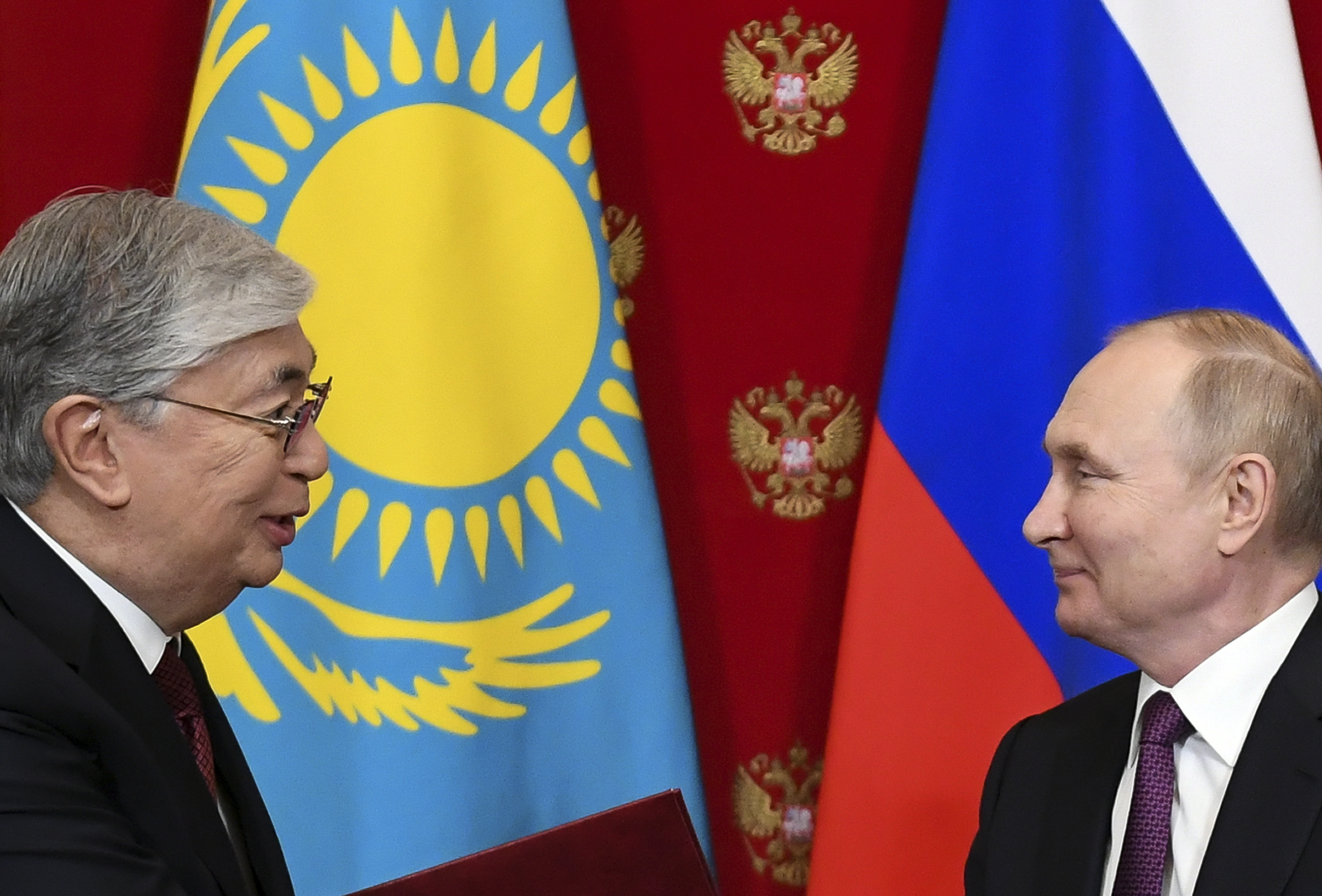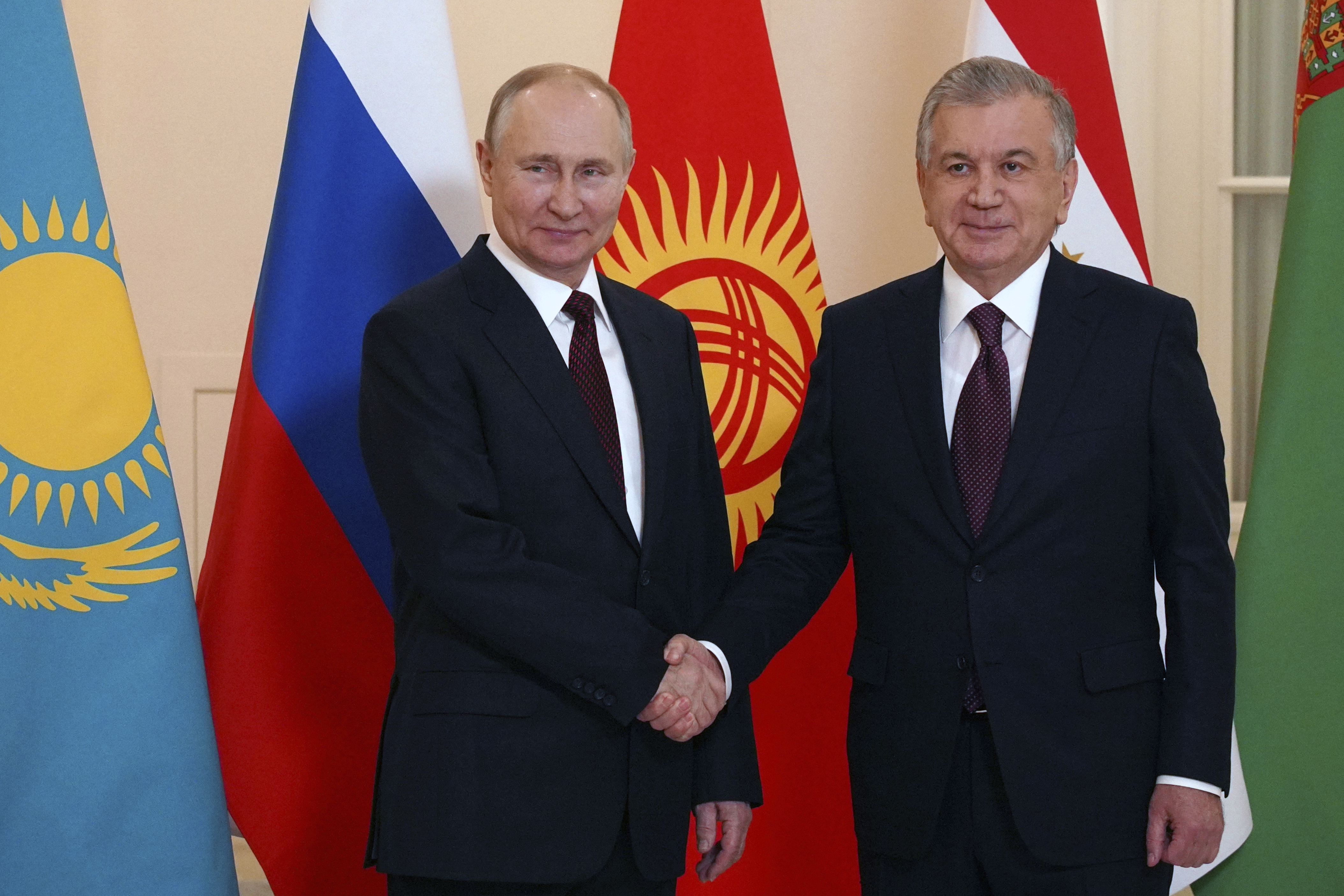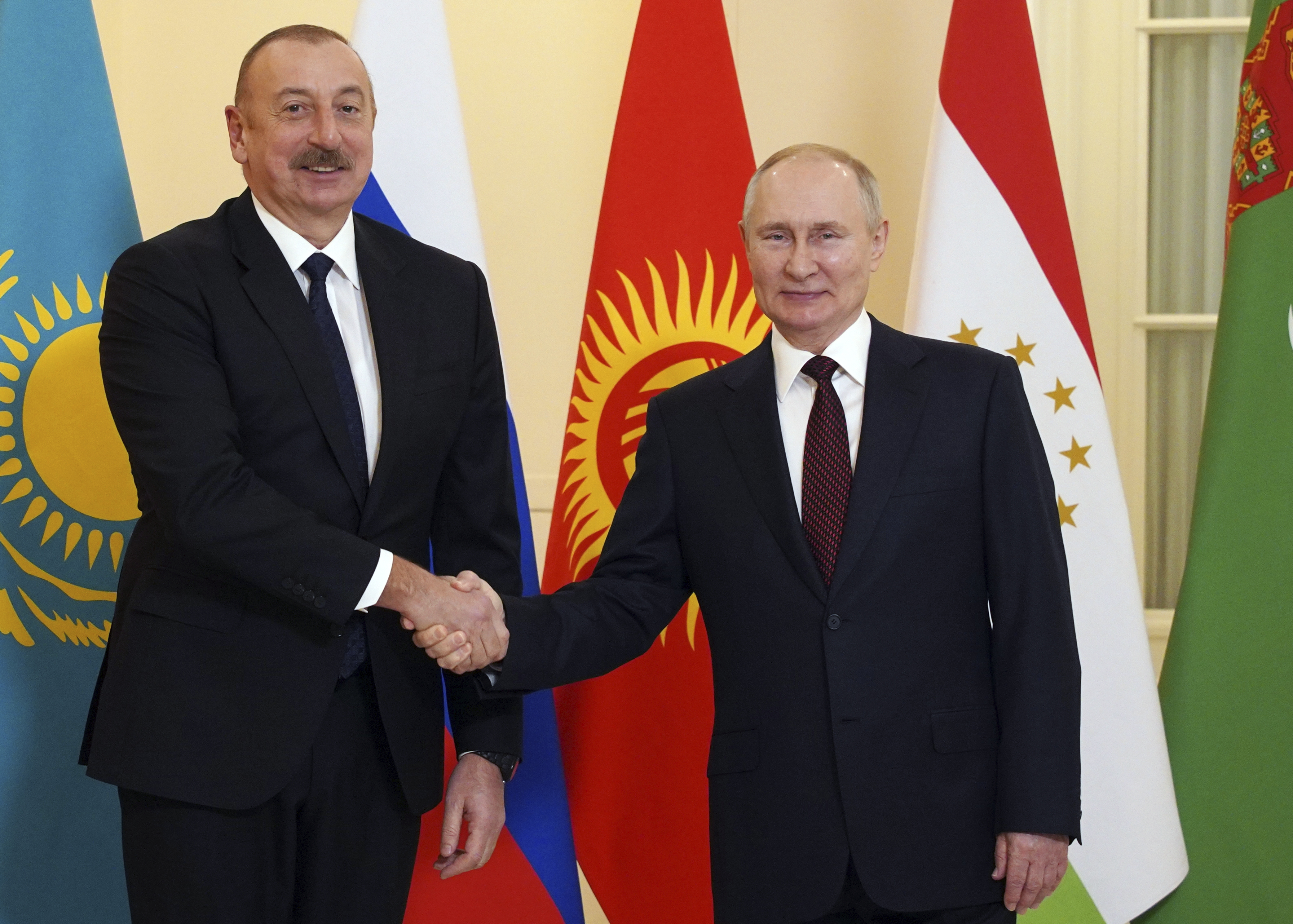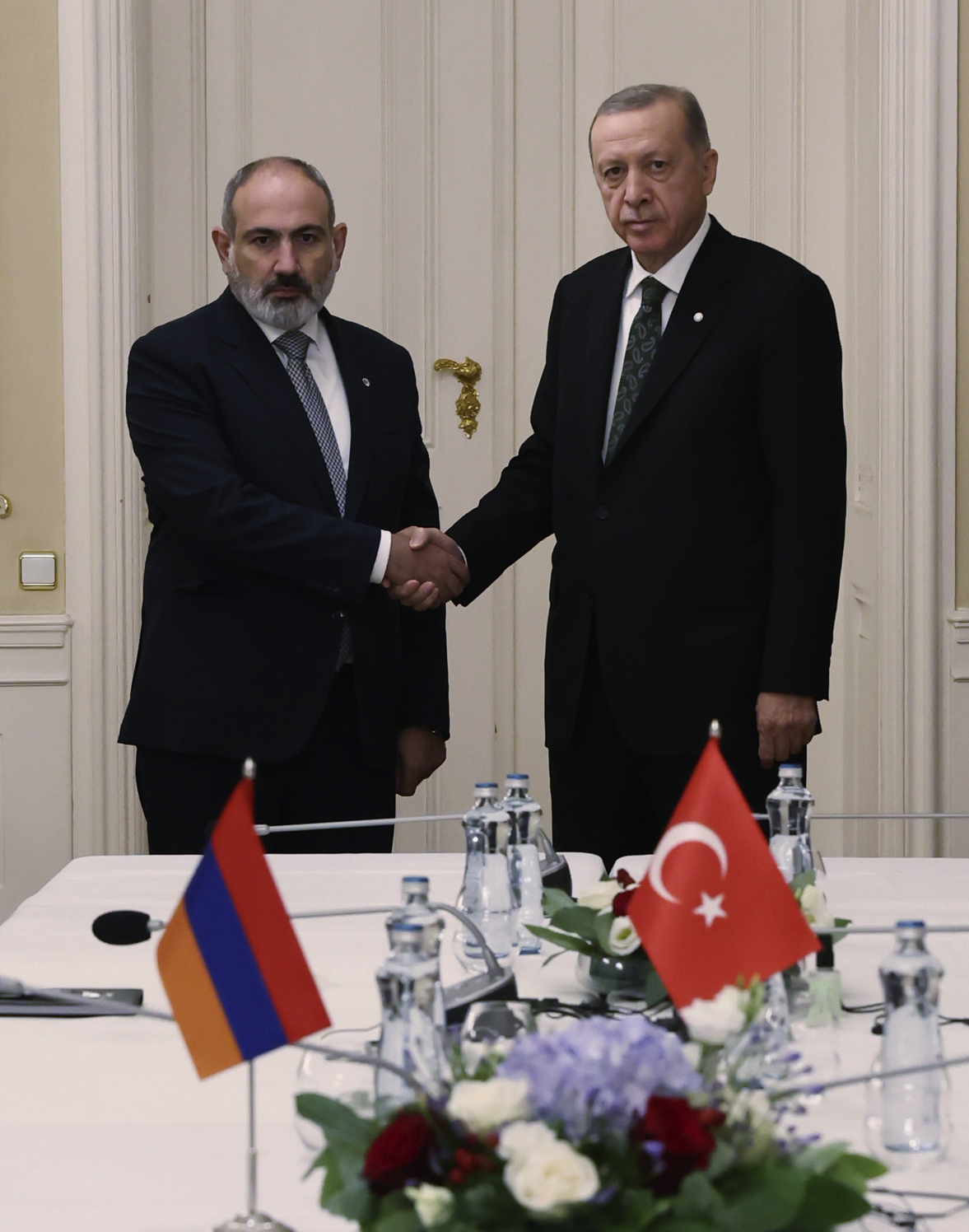
OUR Vladimir Putin invaded Ukraine partly to finally assert Russia’s regional dominance. Almost a year later, the Russian president did the opposite—and not just in Kyiv.
Officials from the former Soviet republics of Central Asia and the Caucasus they say, according to a detailed Bloomberg report, the war has prompted their governments to look for ways to reduce their dependence on Moscow by turning to other powers, including Turkey, the European Union and countries in the Middle East. All spoke on condition of anonymity.
Current and former Russian officials, also on condition of anonymity, they said that Moscow is reacting nervously, even harshly, as the Kremlin loses confidence in its ability to exert influence in the neighboring region.
Russia has for decades been “a veto player, a watchdog in northern Eurasia, where nothing can happen if the Kremlin doesn’t like it,” said Ekaterina Shulman, a Russian political scientist now based in Berlin. “Now the situation seems to be changing,” since Russia is unlikely to become stronger after the war in Ukraine, “this makes imposing its will on neighbors problematic to say the least.”
While the failure of the Kremlin’s key war goal is most evident in Ukraine and Moldova, which have applied for EU membership. and granted candidate status after the conflict began, the invasion forced even traditional friends like Kazakhstan and Armenia to actively forge ties with powers that Moscow had long sought to keep out of the region. This allowed Turkey, in particular, to intervene in the resulting vacuum.
Position of Kazakhstan

In announcing the February 24 invasion, Putin cited Russia’s relationship with Kazakhstan at the time as a model for the relationship he wanted his country to have with the former Soviet republics. Just a month ago, he sent troops to help President Kassym-Zomart Tokayev put down the bloody riots.
But Tokayev openly took issue with Putin’s justification for the war, allowing hundreds of thousands of Russians to flee to his country — Central Asia’s biggest oil exporter — after Russia announced a conscription in September. Shulman, who was declared a “foreign agent” by the Kremlin days after she left Russia in April, was welcomed to Kazakhstan this month by the head of the Senate, the country’s second-in-command, and offered a teaching position at the country’s universities.
“Russia is becoming more and more toxic,” said Baibit Absenbetov, a former board member of Kazkommertsbank, Kazakhstan’s largest bank. “What to do when your neighbor is drunk and rowdy, and you can’t leave?”
Russia appears to be showing its dissatisfaction with Kazakhstan by repeatedly shutting off flows through the 1,500-kilometer Caspian Consortium (CPC) pipeline, citing technical or regulatory problems. The pipeline, through which Kazakhstan supplies about 80% of its oil exports, crosses Russian territory to the Black Sea port of Novorossiysk, less than 100 miles from occupied Crimea.
In November, Kazakhstan said it would increase oil exports across the Caspian Sea by 1.5 million tons, supplying oil to the Baku-Ceyhan pipeline that runs from Azerbaijan to Turkey’s Mediterranean coast. Flows along the route that bypasses Russia could eventually rise to 20 million tons, Tokayev said. In 2021, Kazakhstan shipped over 50 million tons through CPC.
The route has been added to the so-called China-Europe Middle Freight Corridor, which runs through Kazakhstan, Azerbaijan, Georgia and Turkey, and demand has skyrocketed. The war reduced traffic on the less complicated Chinese railroad to Europe via Russia and Belarus.
Over the past year, Tokayev has also promoted defense ties with Turkish President Recep Tayyip Erdogan and has visited Saudi Arabia, Qatar and the United Arab Emirates to boost trade and investment cooperation.
Attitude of Uzbekistan

Neighboring Uzbekistan, heavily dependent on trade with Russia, was trying to open even before the war. It has signed an extended partnership and cooperation agreement with the EU. in July. In December, following the second meeting of the new Strategic Partnership Dialogue with the United States, a joint statement welcomed “the country’s willingness to create new trade routes and diversify import and export markets.”
Undoubtedly, Russia remains a powerful force in the region. With international sanctions in response to the war blocking Russia’s western trade routes, Moscow’s former Soviet neighbors have become even more important to Moscow as trade channels. Exports to Russia from other members of the Moscow-led Eurasian Economic Union — Belarus, Kazakhstan, Armenia and Kyrgyzstan — have soared as goods leave Europe. Turkish exports to Russia also increased.
Kazakhstan and Uzbekistan are doing their best to diversify their relationship while Moscow is preoccupied with Ukraine, but “the geography cannot be changed, there are deep ties and long borders,” said Annette Bohr, Russia and Eurasia Program Fellow at Chatham. House, British think tank. “There will be no turning away from Russia for Central Asia, at least not for many years.”
Armenia – Azerbaijan

However, the war and subsequent sanctions highlighted the dangers of overdependence on Moscow, and nowhere was this more evident than in Armenia, a close ally of the Kremlin in the Caucasus and its only military base there.
Armenia is deeply disappointed by Russia’s unwillingness or inability to intervene in the protracted territorial conflict with neighboring Azerbaijan, which enjoys strong Turkish defense support. Officials are worried about Azerbaijan’s seven-week de facto blockade of the Lachin Corridor, a vital route leading to Armenians living in the disputed enclave of Nagorno-Karabakh, while Russian peacekeepers in the region watch.
“Azerbaijan is taking advantage of the situation in Ukraine,” said Sergei Kazarian, the foreign minister of the unrecognized government of Nagorno-Karabakh, who was unable to travel there from Armenia after his appointment earlier in January.
Three times this month, nationalists have demonstrated outside the Russian military base in Gyumri, holding banners with slogans such as “Russian occupying forces out of Armenia.” The demonstrations against the country’s traditional ally and defender were small but unprecedented.
Prime Minister Nikol Pashinyan recently announced that Armenia would not host planned military exercises of the Collective Security Treaty Organization, a Russia-led alternative to NATO, after the alliance failed to respond to Armenia’s calls for help following border clashes with Azerbaijan last year.
The EU announced on January 23 that, in response to Armenia’s request, it is sending a two-year civilian monitoring mission to patrol the border, in what EU foreign policy chief Josep Borrell called a “new phase” of its involvement in the Caucasus.
Russia’s Foreign Ministry on Thursday condemned the mission in a statement calling for the EU to “join the US and NATO” and warned that its involvement in the region “could only lead to geopolitical confrontation.”
Azerbaijan has also moved closer to the EU, signing an agreement in July to double its gas exports to the union by 2027 as Brussels seeks to replace Russian fossil fuels in response to the war in Ukraine.
He told the EU last month that he would also help finance the laying of a power cable from Azerbaijan and neighboring Georgia to EU member states across the Black Sea, with the possibility of subsequently connecting Ukraine and Moldova.
Advantages of Turkey

So far, Turkey has benefited most from Russian hesitation. With Armenia no longer under Russian protection, Pashinyan and Erdogan held their first talks in October in 13 years, amid a push to mend diplomatic ties and open up their borders.
“Putin has lost his monopoly on the Caucasus,” said Grigory Svedov, head of the Moscow-based research agency Caucasian Knot. “Now Erdogan is the main player in the game.”
Source: Kathimerini
Anna White is a journalist at 247 News Reel, where she writes on world news and current events. She is known for her insightful analysis and compelling storytelling. Anna’s articles have been widely read and shared, earning her a reputation as a talented and respected journalist. She delivers in-depth and accurate understanding of the world’s most pressing issues.